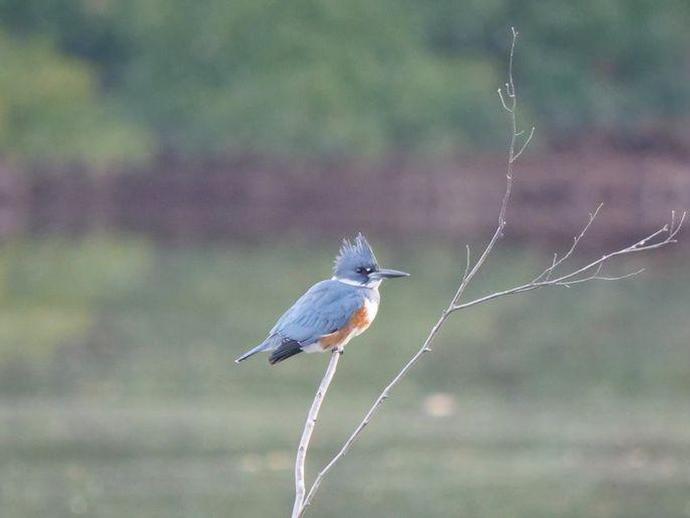November 30, 2021
Ben here with today's #BenInNature update presented by our friends at Carter Bank & Trust!
While visiting South Carolina over the weekend, I spent some time around a lake in Aiken and photographed a number of cool birds! My favorite find of the weekend was this little fellow: a very photogenic belted kingfisher (Megaceryle alcyon).
Belted kingfishers can be found year-round throughout most of the U.S., and through much of their range, they're the only species of kingfisher you're liable to find. Just like this one, they're most often seen perched on trees, posts, and other watchpoints near bodies of water, constantly on the lookout for tasty fish swimming by. Once they spot one, they'll dive into the water after it! You might also see them flying up and down the shoreline making a loud, rattling call.
Kingfishers live near the bodies of water where they hunt, but you'll have a hard time spotting their nests. They dig long, horizontal tunnels in the soft banks near the water. They lay five to eight eggs inside these tunnels, and both the mother and father kingfisher take turns incubating the eggs and feeding their young. The tunnels they dig tend to slope uphill, most likely so that the chicks will be safe inside the air pocket at the higher end of the tunnel if the body of water should flood.
ABOUT #BenInNature
Social distancing can be difficult, but it presents a great opportunity to become reacquainted with nature. In this series of posts, Administrator of Science Ben Williams ventures outdoors to record a snapshot of the unique sights that can be found in the natural world. New updates are posted Monday - Friday, with previous posts highlighted on the weekends. This series of posts is made possible thanks to the support of VMNH Corporate Partner Carter Bank & Trust (www.cbtcares.com).
NATURE PHOTO IDENTIFICATIONS
If you discover something in nature that you would like help identifying, be sure to message us right here on Facebook with a picture (please include location and date of picture) and we'll have our experts help you identify it!

 Hours & Admissions
Hours & Admissions Directions
Directions

